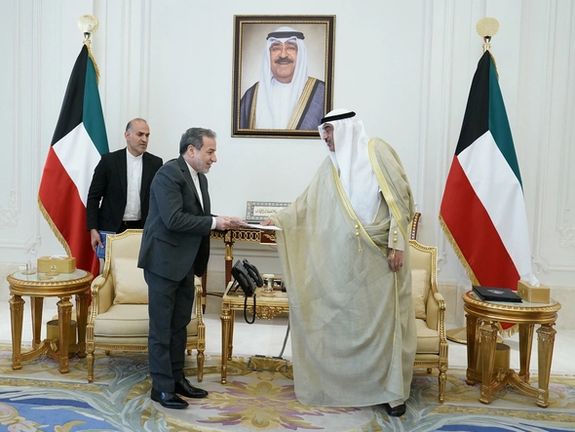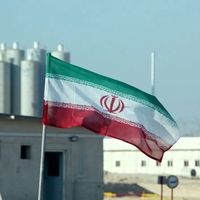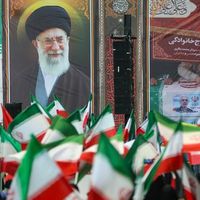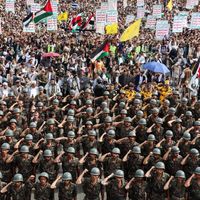"All of our neighbors have assured us that they will not allow their territory or airspace to be used against the Islamic Republic of Iran," Abbas Araghchi stated in a press conference.
As part of his regional mission, Tehran's top diplomat has been intensifying efforts to rally support from Arab nations in response to the looming threat of an Israeli attack, visiting about a dozen states.
Iran’s diplomatic outreach to its neighbors has intensified following its own missile strike on Israel on October 1, during which over 180 missiles were launched. This marked the second missile strike initiated by Tehran against Israel this year. Israel has said it will retaliate against the missile barrage and is preparing its military for such an eventuality.
Iran's attack followed Israel’s assassinations of top leaders of militant groups backed by Iran, including those of Hezbollah and Hamas, and the Islamic Revolutionary Guards (IRGC).
As Tehran continues its efforts to engage with its neighbors, a report by the US-funded news outlet Alhurra this week cited a senior Israeli source stating that Arab nations along the Persian Gulf have urged Israel to deliver a decisive blow to Iran.
The report further suggested that the Arab nations also view this moment as an opportunity to weaken Tehran through support of Israel’s military actions.
Arab nations are aware that Iran could retaliate against their oil facilities if they are seen as supporting attacks on its oil or nuclear sites by Washington or Tel Aviv – particularly, in light of the 2019 Saudi Aramco attacks, which inflicted significant damage on the kingdom's oil-dependent economy and were widely attributed to Iran. Their willingness to engage with Iran in recent weeks could be an attempt to lessen the likelihood of any Iranian hostile act during tit-for-tat attacks with Israel.
Iran's Foreign Minister, however, claimed there is a shared understanding to prevent tension and escalation.
"The Islamic Republic of Iran does not seek war in the region, although we are prepared for war. We have made every effort to reduce tensions, but we are both ready and capable of confronting any scenario,” Araghchi stated.
The foreign minister of the Islamic Republic, which has faced accusations of international crimes since coming to power in 1979, also expressed hope that international laws would prevent Israel from attacking its nuclear facilities.
He further claimed that "all the countries" in the region have informed Tehran of their opposition to any attack on Iran, particularly targeting its nuclear infrastructure.
"I emphasize again, however Israel attacks Iran, Iran will respond in kind," he said.








